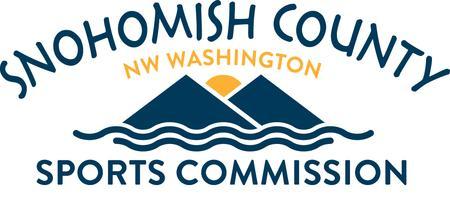
 A series of 12 rural tourism workshops held this past spring were designed to help small communities in eastern and northern Snohomish County learn how to expand their tourism infrastructure and increase visitor numbers, thereby benefiting local economies. The Rural Tourism Workshop series wrapped up on May 24 with a final roadmap planning session.
A series of 12 rural tourism workshops held this past spring were designed to help small communities in eastern and northern Snohomish County learn how to expand their tourism infrastructure and increase visitor numbers, thereby benefiting local economies. The Rural Tourism Workshop series wrapped up on May 24 with a final roadmap planning session.
Regional action teams were established to devise tasks to help their communities more visitor-ready, and to assess gaps and needs for sustainable tourism development including: lodging, trail connectivity, interpretive and visitor signage, events and festivals.
Community leaders, tourism entrepreneurs, tour operators, outdoor enthusiasts, lodging property owners, restauranteurs, and anyone with an interest in strengthening the local economy through tourism are encouraged to participate in the action teams going forward. Interested stakeholders can contact Annique Bennett at annique.bennett@snoco.org for information on how to participate on an action team.
The teams will work together in the coming months with long term objectives to strengthen community connections to long-distance regional trails; strengthening and defining individual community identities as trail towns along a shared route; and to collaboratively promote the rural character and history of the scenic valleys.
The Rural Tourism Workshop Series was organized by Amy Spain, executive director of the Snohomish County Tourism Bureau, and Annique Bennett, strategic tourism coordinator with the Snohomish
County Economic Development Division. Spain and Bennett are jointly tasked with implementing the county’s 2010 Strategic Tourism Plan and have worked to organize the Rural Tourism Workshops in conjunction with Pandion Consulting.
Led by Dan Moore, principal of Pandion Consulting and travel industry expert, the workshops focused on the county’s two dynamic river valleys, the Skykomish and Snohomish River Valley to the east and the Stillaguamish and Sauk River Valleys in the north. Both areas offer tremendous opportunities for expanding outdoor recreation, adventure travel, and agritourism.
The series of workshops began in late February with community visioning and planning on how the regional economy can grow with tourism as a key component. Following the visioning and planning workshop, topical area workshops were selected by stakeholders in each valley to highlight and capitalize on their unique strengths. Topics included bicycle tourism, outdoor recreation, adventure travel and ecotourism, small town experiences and cultural tourism, culinary tourism and agritourism.
“We were thrilled and energized by the outstanding participation in this workshop series,” notes Spain. “Participants renewed or created partnerships and coalesced around shared visions for their communities. Stakeholders are dedicated to seeing sustainable and thoughtful development that will
enhance and preserve what makes these river valleys so special while growing a more diverse economy.”
Bennett added, “The series bought dozens of small local businesses, non-profits, community members, area leaders and elected leaders from both river valleys and surrounding communities. The communities worked diligently to gain planning tools in professionally facilitated hands-on workshops to develop relevant and sustainable tourism programs for their region.”
For additional specific information about the sessions and what was covered, visit www.snocotourismworkshops.org. This series is an initiative of the current County Strategic Tourism Plan, funded with Snohomish County Lodging Taxes and coordinated through the Snohomish County Tourism Bureau and the County Office of Economic Development.
The Snohomish County Tourism Bureau is a non-profit economic development agency responsible for the year-round professional tourism marketing of Snohomish County, Washington. Visitors spend $1 billion in Snohomish County annually, contributing $72 million in state and local tax revenues. Direct visitor spending benefits retailers, restaurants, attractions, transportation services, hotels and other businesses, and provides employment for Snohomish County residents.

There are no comments
Please login to post comments